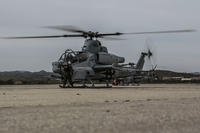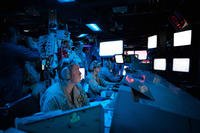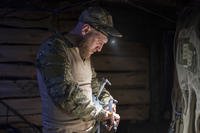While the New York Times and others are contemplating the beginning of the end of oil, the Pentagon's way-out research arm is trying to figure out what it would take to make the U.S. military "petroleum free," according to Inside Defense. Naturally, the mad scientists picked robots and wireless battlefield networks as two of their top energy savers.
Naturally, the mad scientists picked robots and wireless battlefield networks as two of their top energy savers.
This universal connectivity will allow commanders to track individual soldiers and robots as well as logistics system status and readiness, the summary [of a February Darpa energy workshop] states. These capabilities, coupled with advanced modeling and simulation tools, will allow commanders to rapidly explore and exploit warfighting options, which in the end translates into shorter execution time lines and reduced energy requirements.
Darpa-ites also saw drones as a potential boost to oil alternatives.
Using more unmanned systems will save energy because they will be smaller and lighter than manned systems that require armor, the summary states. Plus, robots and other unmanned systems will allow reduction of the number of combat soldiers needed to accomplish the mission, further contributing to reduced energy requirements.
Electricity will one day be the big replacement for oil, the Darpa conferees believe. And "since electricity can be generated from a variety of sources, it may be possible in 30 years to avoid having to rely on energy and fuel imported into a battlespace," Inside Defense notes.
The military would also need portable generators and "'ultra-high-capacity' electric storage devices to support directed-energy weapons and other 'futuristic gun systems' that require massive amounts of energy in short bursts."
But those ray guns shouldn't be wired up to the generators. The energy should be beamed through the air, instead. "This technology will be valuable because power lines are highly vulnerable to sabotage," the Darpa summary observes. Of course they are.








